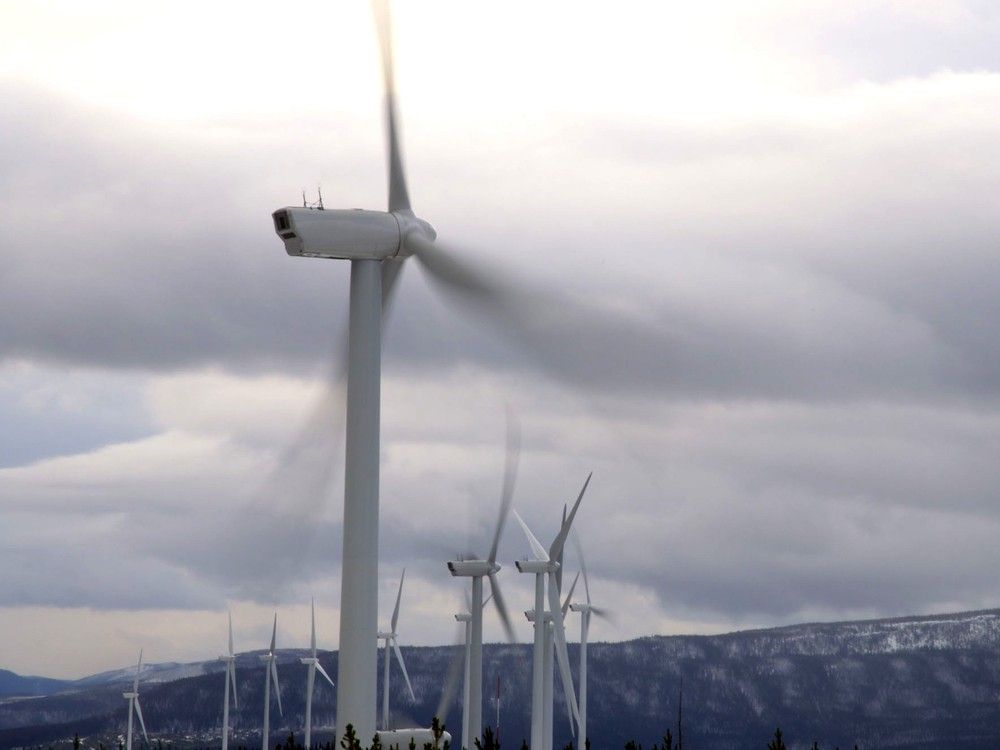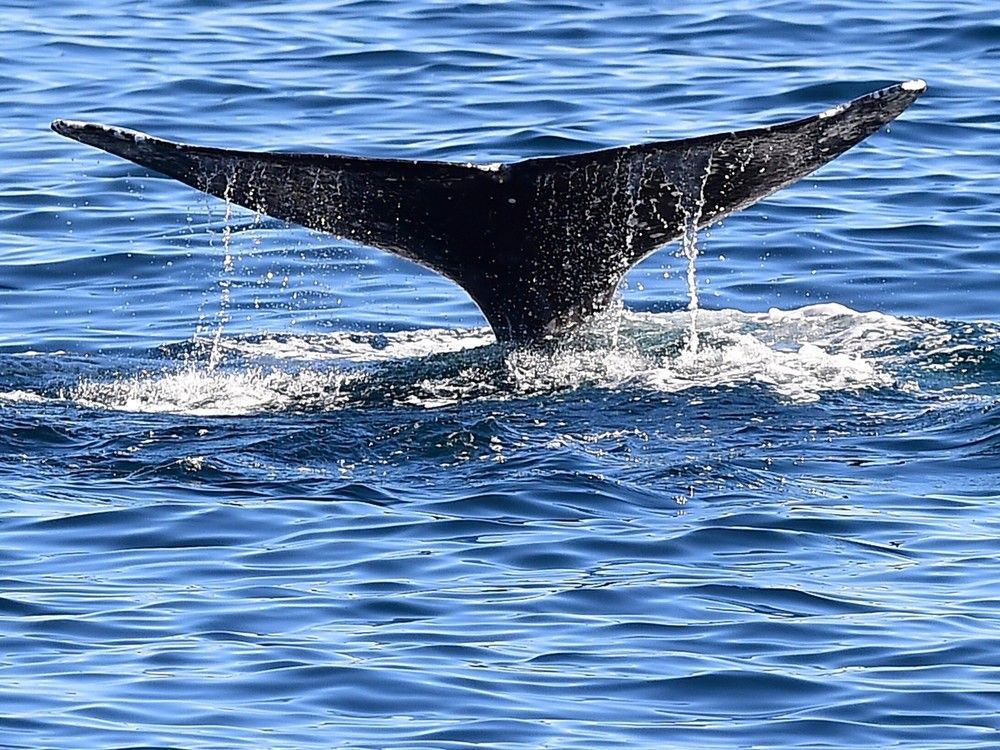
Here’s the latest news concerning climate change and biodiversity loss in B.C. and around the world, from the steps leaders are taking to address the problems, to all the up-to-date science.
Check back every Saturday for more climate and environmental news or sign up for our Climate Connected newsletter HERE.
In climate news this week:
• B.C. government proposes new legislation to speed up renewable energy projects
• Greens’ Elizabeth May proves pundits wrong, hangs onto Saanich-Gulf Islands seat
• Climate change is making coffee more expensive. Tariffs likely will too
• B.C. wildfire season begins as province hit with warm and dry conditions
Human activities like burning fossil fuels and farming livestock are the main drivers of climate change, according to the UN’s intergovernmental panel on climate change. This causes heat-trapping greenhouse gas levels in Earth’s atmosphere, increasing the planet’s surface temperature.
The panel, which is made up of scientists from around the world, has warned for decades that wildfires and severe weather, such as B.C.’s deadly heat dome and catastrophic flooding in 2021, would become more frequent and intense because of the climate emergency. It has issued a code red for humanity and warns the window to limit warming to 1.5 C above pre-industrial times is closing.
According to NASA climate scientists, human activities have raised the atmosphere’s carbon dioxide content by 50 per cent in less than 200 years, and “there is unequivocal evidence that Earth is warming at an unprecedented rate.”
And it continues to rise. As of April 14, carbon dioxide in the atmosphere has risen to 428.15 parts per million, up from 427.09 ppm last month and 426.65 ppm in February, according to NOAA data measured at the Mauna Loa Observatory, a global atmosphere monitoring lab in Hawaii.

Climate change quick facts:
• The Earth is now about 1.3 C warmer than it was in the 1800s.
• 2024 was hottest year on record globally, beating the record in 2023.
• The global average temperature in 2023 reached 1.48 C higher than the pre-industrial average, according to the EU’s Copernicus Climate Change Service. In 2024, it breached the 1.5 C threshold at 1.55 C.
• The past 10 years (2015-2024) are the 10 warmest on record.
• Human activities have raised atmospheric concentrations of CO2 by nearly 49 per cent above pre-industrial levels starting in 1850.
• The world is not on track to meet the Paris Agreement target to keep global temperature from exceeding 1.5 C above pre-industrial levels, the upper limit to avoid the worst fallout from climate change including sea level rise, and more intense drought, heat waves and wildfires.
• On the current path of carbon dioxide emissions, the temperature could increase by as much 3.6 C this century, according to the IPCC.
• In April, 2022 greenhouse gas concentrations reached record new highs and show no sign of slowing.
• Emissions must drop 7.6 per cent per year from 2020 to 2030 to keep temperatures from exceeding 1.5 C and 2.7 per cent per year to stay below 2 C.
• There is global scientific consensus that the climate is warming and that humans are the cause.
(Source: United Nations IPCC, World Meteorological Organization, UNEP, NASA, climatedata.ca)
Latest News

Climate change is making coffee more expensive. Tariffs likely will too
With her purple-and-pink hair swaying, Reneé Colón stands on a stepladder in the rented corner of a warehouse, pouring Brazilian coffee beans into her groaning old roasting machine.
The beans are precious because they survived severe drought in a year when environmental conditions depressed coffee production globally, doubling the price of raw beans in just months.
“Unfortunately, coffee is going to become more scarce,” said Colón, founder and roaster at Fuego Coffee Roasters. “Seeing that dramatic loss of the Brazilian crop is a perfect example.”
Losses from heat and drought have cut production forecasts in Brazil and Vietnam, the world’s largest coffee growers. Global production is still expected to increase, but not as much as commodity market investors had expected. That’s sent coffee prices up, largely because of continued high demand in Europe, the U.S., and China.
Prices peaked in February but have remained high, forcing roasters like Colón to weigh how much of that cost to absorb and how much to pass on to consumers.
—The Associated Press
B.C. government proposes new legislation to speed up renewable energy projects
The B.C. government has proposed new legislation to speed up the permitting process for renewable energy projects in a bid to address climate change and secure energy independence amid trade threats.
Energy Minister Adrian Dix introduced the new renewable energy projects act to the legislative assembly on Wednesday.
If passed, the act will expand the authority of B.C.’s energy regulator to oversee renewable energy projects. That would mean the regulator would be the primary permitting agency for clean energy and transmission lines.
Dix said this would help simplify the approvals process for these projects, eliminating the need for cross-ministry and agency permitting.
The regulator’s first task would be to focus on the $3 billion North Coast Transmission Line project and wind-and solar-power projects.
He said the line will help accelerate the expansion of B.C.’s electricity grid and meet the demand in growth arising from mineral and metal mining, port electrification, hydrogen and fuel processing, and shipping projects under consideration.
—Tiffany Crawford
B.C. wildfire season begins as province hit with warm and dry conditions
It’s a spring start for B.C.’s wildfire season as crews battle two rapidly spreading blazes in northeastern B.C., including one that led to evacuations in Fort St. John late Thursday.
Unseasonably warm, dry and windy conditions are forecast over the weekend, raising concerns that more wildfires may break out.
While there’s a slight chance of showers overnight in northeastern B.C., the rest of the weekend looks dry and sunny, with winds gusting up to 50 kilometres an hour on Friday and up to 40 km/h on Saturday, according to Environment and Climate Change Canada.
B.C. fire information officer Karley Desrosiers said Friday that firefighters are concerned about the high winds, as firefighters from the city of Fort St. John and the B.C. Wildfire Service continue to battle an out-of-control fire in a small municipal forest that prompted the evacuations of 19 residences late Thursday.
Desrosiers said helicopters are dumping water on the fire, while ground crews are working to limit its spread.
—Tiffany Crawford
Vancouver company turns to Trump for permission to mine international waters, bypassing a UN agency
A Canadian company announced Tuesday that its U.S. subsidiary has submitted applications to the National Oceanic and Atmospheric Administration to mine the sea floor, sparking outrage by bypassing a U.N. agency that regulates deep international waters.
The Metals Company, based in Vancouver, said it was seeking two exploration licences and a commercial recovery permit, making it the first company to apply to commercially mine the seabed.
The filing is expected to spark a complex legal battle since the Jamaica-based International Seabed Authority, a United Nations agency that regulates international deep sea waters, has the power to authorize exploitation permits.
“Any commercial exploitation outside of national jurisdiction carried out without the authorization of ISA would constitute a violation of international law,” the authority said in late March after The Metals Company announced its intention to seek permission from the U.S. government to start deep sea mining in international waters.
There are no regulations in place to oversee such mining as scientists warn that extracting minerals from vital ecosystems that help regulate climate change could cause permanent damage.
—The Associated Press

Greens’ Elizabeth May proves pundits wrong, hangs onto Saanich-Gulf Islands seat
Green party co-leader Elizabeth May, who has held the federal Saanich-Gulf Islands seat since 2011, will be returning to Ottawa.
May, who throughout the campaign felt the electorate was leaning her way when polls suggested otherwise, proved many of the pundits wrong by taking 39.1 per cent of the popular vote with all polls reporting.
May identified early on that Conservative challenger Cathie Ounsted would be her stiffest competition, as the Conservative Party has traditionally had strong support in the riding. But in preliminary results, Liberal David Beckham was in second place with 31.8 per cent of the vote, while Ounsted was third with 25.1 per cent. Saanich councillor and NDP candidate Colin Plant was in a distant fourth place with four per cent of the vote.
May had on several occasions tried to remind people climate change was still a threat, old growth forests are still under siege and killer whales are no longer thriving in the Salish Sea.
—Victoria Times Colonist
Youth-led lawsuit on climate change wins another round in court
A lawsuit by seven young people designed to win Ontario government action on climate change is expected to proceed after the Supreme Court of Canada refused to hear an appeal by the province.
Lawyers for the young plaintiffs contend the high court’s refusal to take up the appeal marks “a significant victory for climate litigation in Canada” and will force the province to answer for its greenhouse gas emissions policy.
“It’s decision time,” Stockwoods lawyer Nader Hasan, lead counsel for the plaintiffs, said Thursday.
“The Ontario government is out of runway and will finally have to face the music for gutting its climate targets and putting our collective health, safety, and futures at risk.”
One of the applicants, Shelby Gagnon, said the case shows even small acts of courage can create change. “Our case is a call to all generations to take action as we stand together to show that the rule of law matters, science matters, and justice matters,” she said Thursday.
—Ottawa Citizen
Nation files an emergency injunction filed over raising B.C. gold mine’s tailings dam
A B.C. First Nation that is going to court to try to stop a mining company from raising its tailings dam is applying for an emergency injunction to put the construction on hold.
The Xatsull nation announced earlier this month that it had filed a legal challenge over the plan to allow the Mount Polley mine to raise its dam, a decade after a similar storage site at the mine collapsed, setting off an environmental disaster in the nation’s territory.
The nation says in a statement issued Friday that when it filed the request for the review of the government decision, it also invited Imperial Metals, Mount Polley’s parent company, to suspend its construction until the court decision is made.
In August 2014, a tailings dam at the open-pit gold and copper mine in B.C.’s Cariboo region collapsed, spilling waste into nearby waterways, in a disaster that the Xatsull said in its initial injunction has devastated its territory and is “still harming the nation’s rights, culture and way of life.”
—The Canadian Press
Alberta takes federal clean electricity regulations challenge to court
Alberta is launching a legal challenge to federal clean electricity regulations, alleging that they unconstitutionally stray into the province’s jurisdiction.
Saying the regulations pose a threat to “Albertans’ lives and livelihoods,” Premier Danielle Smith said Thursday that the province would refer the question of the regulations’ constitutionality to the Court of Appeal of Alberta.
“Our government will not blindly accept unconstitutional net-zero regulations that put Albertans in harm’s way,” she said, further asserting that the regulations would increase the cost of power while coincidentally reducing reliability.
The court will provide its opinion on whether the regulations are constitutional or not, though there’s no timeline for when that will happen. That ruling would not necessarily be legally binding but would likely be strongly considered in future litigation.
—Edmonton Journal

As Trump pares back ocean protections, California weighs expanding them
Strands of kelp glow in the dim morning light off California’s Channel Islands as fish and sea lions weave through the golden fronds. It’s a scene of remarkable abundance — the result of more than two decades of protection in one of the state’s oldest marine reserves.
But farther out in the Pacific, life in the vast Pacific Remote Islands Marine National Monument faces a very different future. The Trump administration has moved to reopen about 1.3 million square kilometres of previously protected waters there to commercial fishing, in a dramatic rollback of federal ocean protections.
California, meanwhile, may be headed in the opposite direction. As it undertakes its first 10-year review of its marine protected area network, state officials, scientists, tribal leaders and environmental advocates are pushing not just to maintain protections but to expand them.
“These areas are like our underwater Yellowstone,” said Douglas McCauley, director of the Benioff Ocean Science Laboratory at the University of California, Santa Barbara, speaking aboard a dive boat heading to the Channel Islands. “It’s important to protect that biological heritage, but it also creates an extremely lucrative tourism industry. People want to go see all that nature and wildlife in action.”
—The Associated Press